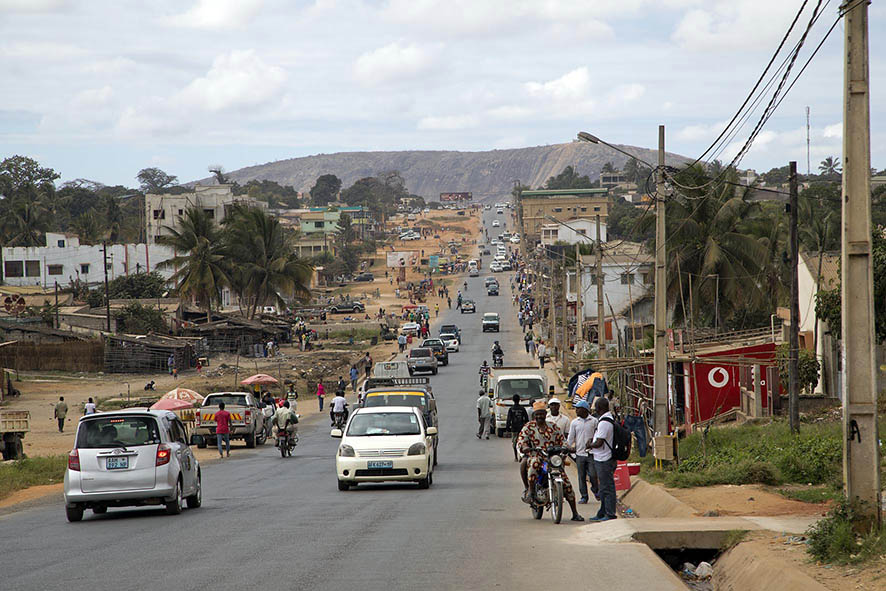Mozambique—Supporting the Policy Enabling Environment for Development (SPEED, SPEED+, III)
Client: U.S. Agency for International Development
Duration: 2010-2026
Region: Sub-Saharan Africa
Country: Mozambique
Solutions: Economic Growth
Mozambique has been engaged in economic policy reform since its first democratic elections in 1994. With a pressing need to reform the country’s business policies and strengthen private sector participation, the U.S. Agency for International Development (USAID) initiated the Support Program for Economic and Enterprise Development (SPEED), implemented by DAI from 2010 to 2015. Throughout the program, SPEED successfully expanded policy reforms that increased trade and investment, the competitiveness of Mozambican firms, and local job opportunities and incomes.
To build upon this momentum, the USAID-funded Supporting the Policy Environment for Economic Development (SPEED+) program further developed a favorable business environment to attract investment and expand markets, contributing to inclusive economic growth and the conservation of natural resources. Working with consortium partner Nathan Associates, DAI helped advance reforms in key areas such as agriculture, trade and investment, power, water, and biodiversity conservation, while also improving government transparency and fostering new public-private partnerships.
The third iteration of SPEED, which started in 2021, is improving Mozambique’s business-enabling environment and enhancing governance in agriculture, trade facilitation, energy, biodiversity conservation, and health; it is also strengthening public financial management while enhancing the role of civil society, thereby improving the country’s ability to plan, manage, and finance its own development.

Sample Activities
- Provide independent and high-quality analysis and policy options from economic specialists and work with policy influencers to promote informed decisions.
- Improve public-private dialogues through targeted conferences and meetings, supporting local think tanks, and engaging new voices such as youth organizations.
- Work with local partners to build awareness and public support for policy reforms using traditional and social media.
- Build capacity to enforce conservation laws and support ecotourism activities that help incentivize biodiversity conservation.
- Develop scorecards to monitor reforms, using online tools to survey experts and rate progress on policy recommendations.
Select Results
- Assisted in reviewing the National Commercial Code for the Mozambique Council of Ministers, which will simplify the process of registering and starting a business in Mozambique.
- Developed a decree to establish the National Trade Facilitation Committee, which coordinates, supervises, and monitors implementation of the World Trade Organization Trade Facilitation Agreement.
- Supported industry associations to successfully advocate for the removal of the Nacala Special Import Tax, which increases the competitiveness of Mozambique’s exports by reducing the cost of outbound shipping containers by $400 each.
- Created a comprehensive guide for implementing Mozambique’s land legislation and trained Ministry of Agriculture staff in its use.
- Collaborated with USAID’s Power Africa initiative to help Mozambique create a new independent energy regulator, the Energy Regulatory Authority.
- Supported counterparts at the Ministry of Land, Environment, and Rural Development to complete a package of four priority land law and administration reforms that will enhance accessibility and security of formal land tenure, and stimulate an increase in land-based investment by clarifying, simplifying, and providing more certainty on land use titles.
- Trained 15 judges on the importance of protecting Mozambique’s biodiversity by processing wildlife crimes.
- Supported the Wildlife Conservation Society to launch the Mozambican Biodiversity Information System (SIBMOZ) website and the Environmental Licensing Management System. SIBMOZ is the first comprehensive biodiversity website of its kind in Mozambique.
- Supported a new electricity law that offers simplified licensing for mini-grid investments; under the current regime investors must follow the concession process (22 steps, $2 million, three years), while the new law allows mini-grid projects up to 10 megawatts to obtain a simplified license that requires only three steps at one agency. The law empowers the new energy regulator, ARENE, to engage in public procurements and tariffs, and unbundles the electricity market for service providers, grid operators, and system operators, bringing improved competition and efficiencies.
- Supported the country’s first National Biodiversity Information System, called Mozambican Biodiversity Information System (SIBMOZ).
Featured Links
RELATED CONTENT:
Uzbekistan—USAID Agricultural Value Chains Activity (Uzbekistan AVC)
The USAID Agricultural Value Chains Activity in Uzbekistan improved the quality and volume of agricultural production and post-harvest handling and production, facilitated market linkages, and linked educational institutions with private sector demand.
Read More